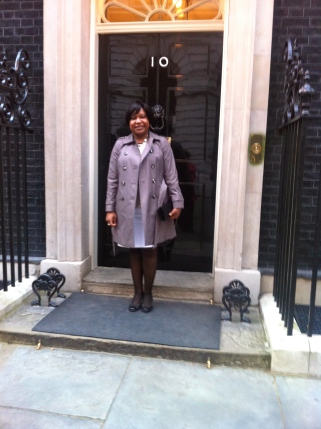
One of the biggest criticisms of social media is its potential to diminish performance by wasting time & encouraging procrastination. Whilst this is a potential risk, I am going to talk about my personal experience of using social media to compliment my work. I believe that smart use of social media can promote learning, collaboration and improve performance. This recent BBC article on the pitfalls of ignoring social media in any business strategy further affirms my beliefs. I am going to predominantly look at Twitter which I use more so than any other social network.
I signed up for a personal account on Twitter (see @S_Amani) in 2009 but didn’t actually start to use it until November 2010. The reason being, I just didn’t get what it was about – why were people posting these short sentences – and links? And I couldn’t like their posts like on Facebook. And the whole followers thing. How can a person have 70, 000 followers – why were these people following this person? What are they gaining?? I was baffled.
That changed in 2010 after I signed up for a MSc in Health Care Management. I remember speaking to the professor who was leading the programme at the time and expressing my concern about the lack of time to read & analyse research papers due to my full time job. He had an amused look when I described my typical way of finding, reading & analysing papers. This used to typically involve a mix of library, google and Athens searches then printing papers out, highlighting sections with different colour highlighter markers…you get the gist.
He casually picked up his iPad and showed me his primary source of information: Twitter. This surprised me. At the time, I also remember thinking – this totally blows the whole argument of social media only being for certain generations. By following the right people and quickly scanning the timeline, I was soon able to find papers relevant to my studies. But that wasn’t what really sealed the deal for me – it was the ability to talk to the authors, the researchers and the very people affected by various policies, in real-time.
Another factor that drew me on to Twitter was a new part-time job as a Youth Mental Health Network Lead for the South East of England. I started this job in December 2011 and was tasked with mobilising people who are passionate about the mental health of adolescents and young adults across Surrey, Sussex & Kent. An exciting but challenging task. One of the more effective means of communicating across such a large geographical area has been via the Youth Mental Health Network Online Network (a social network for members) and via the Youth Mental Health Network Twitter account which has grown to 1100 followers in just 5 months (see @Time4Recovery).
My previous posts regards my Emerging Leader Award 2010, Mary Seacole Award 2011, TEDMED 2012 Scholarship etc are further testaments of the potential positive uses of social media – if used wisely & productively. I can honestly say that I would not have been fortunate enough to win these awards had it not been for me being able to access interactive information shared via Twitter.
Social media is not for everyone, but it is an option for those who enjoy working collaboratively and using less conventional means to communicate. For those still sitting on the fence, I say give it a try and lurk around a site or 2 – you might be pleasantly surprised. Claire over at ClaireOT’s blog has a real handy quick start guide for using Twitter. Lastly, the most convincing element of social media for me have been the connections that I have made with a range of people from all sorts of backgrounds – some of whom I have been fortunate to meet in real life. This ability to network with thinkers and doers who pride themselves in making a difference by innovating has been the final selling point for me. I hope you find using social media as enlightening as I have.

